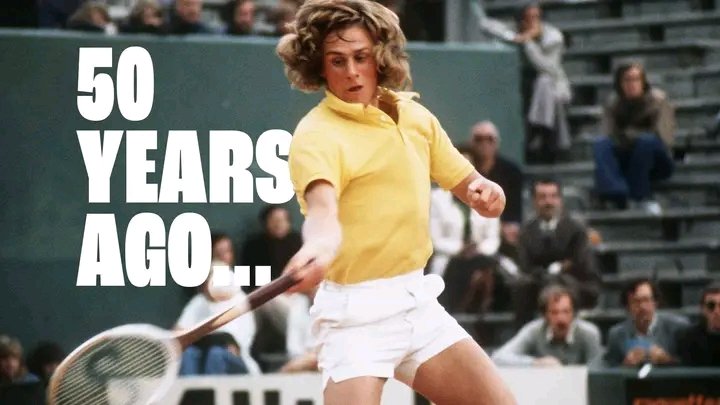
Bjorn Borg: A Founding Father of Tennis Spotlight.
Few names in the history of tennis shine as brightly as Bjorn Borg’s. Revered for his dominance on the court and his cool demeanor under pressure, Borg revolutionized the sport during his reign in the late 1970s and early 1980s. His influence was so profound that he has been honored as one of the founding fathers of the “Tennis Spotlight,” a tribute to his legacy in shaping the modern game.
Borg’s Meteoric Rise
Bjorn Borg was born on June 6, 1956, in Sweden, and from an early age, he displayed an exceptional talent for tennis. By the time he was 15, he was already competing in Davis Cup matches for Sweden, and at 18, he won his first Grand Slam at the French Open in 1974. This victory marked the beginning of a golden era for Borg, as he quickly became one of the most dominant players in tennis history.
Between 1974 and 1981, Borg amassed an astonishing 11 Grand Slam titles, including six French Open and five consecutive Wimbledon titles. His achievements were even more remarkable considering the stark contrast in playing surfaces between Roland Garros’ slow clay and Wimbledon’s fast grass courts. His ability to transition seamlessly between surfaces showcased not only his technical brilliance but also his unparalleled mental fortitude.
The Ice Man’s Influence on Tennis
Borg’s playing style was revolutionary. His two-handed backhand, topspin-heavy groundstrokes, and incredible baseline play laid the foundation for the modern power game. Before Borg, most players approached tennis with a serve-and-volley mindset, but he changed that dynamic, proving that baseline dominance could be equally effective. His ability to construct points with relentless consistency and precision made him an unstoppable force.

Beyond his technique, Borg’s mental strength became legendary. Dubbed “The Ice Man” for his unshakable composure, he rarely displayed emotion on the court, even in the most intense matches. This level of discipline and control set a new standard for mental toughness in professional tennis, inspiring generations of players to prioritize psychological resilience.
The Wimbledon Legacy
Borg’s streak at Wimbledon remains one of the most celebrated achievements in tennis history. From 1976 to 1980, he won five consecutive titles, a feat that was eventually surpassed only by Roger Federer in the 21st century. His 1980 Wimbledon final against John McEnroe is often regarded as one of the greatest matches ever played. The dramatic fourth-set tiebreak, where McEnroe saved multiple match points, remains a defining moment in tennis lore. Borg ultimately triumphed, cementing his place as a Wimbledon legend.
An Unexpected Retirement and Lasting Impact
In 1983, at the age of just 26, Borg shocked the tennis world by announcing his retirement. Despite his dominance, the physical and mental demands of the sport had taken their toll. His departure left a void in tennis, as fans and analysts speculated about how many more Grand Slam titles he could have won had he continued.
Although his time at the top was brief, Borg’s legacy has endured. His impact on tennis extends far beyond his records. He paved the way for future stars like Federer, Rafael Nadal, and Novak Djokovic, who have all cited him as a major influence.
Honored as a Founding Father of Tennis Spotlight
Borg’s recognition as one of the founding fathers of the “Tennis Spotlight” is a testament to his lasting influence. His contributions to the sport go beyond his titles—he redefined what it meant to be a tennis champion. His style, discipline, and sportsmanship set a benchmark that continues to inspire generations.
Even today, his name is synonymous with greatness. Whether through his iconic Wimbledon victories, his pioneering baseline play, or his ice-cold demeanor under pressure, Bjorn Borg remains one of tennis’ true legends. His place in history is secure, not just as a champion but as a transf
ormative figure in the sport.


